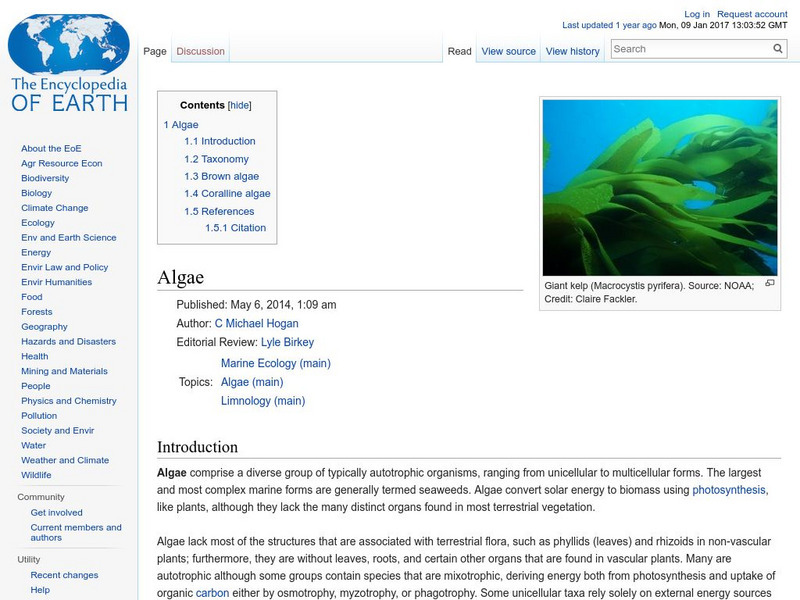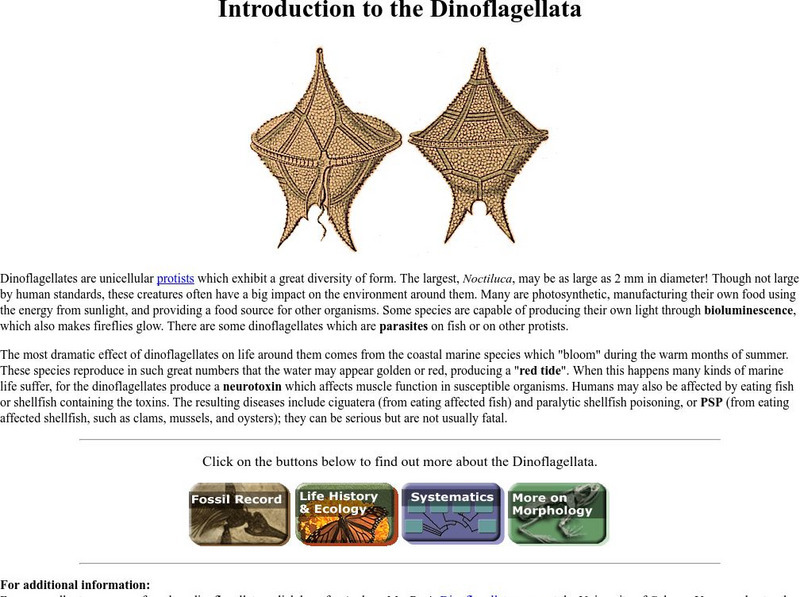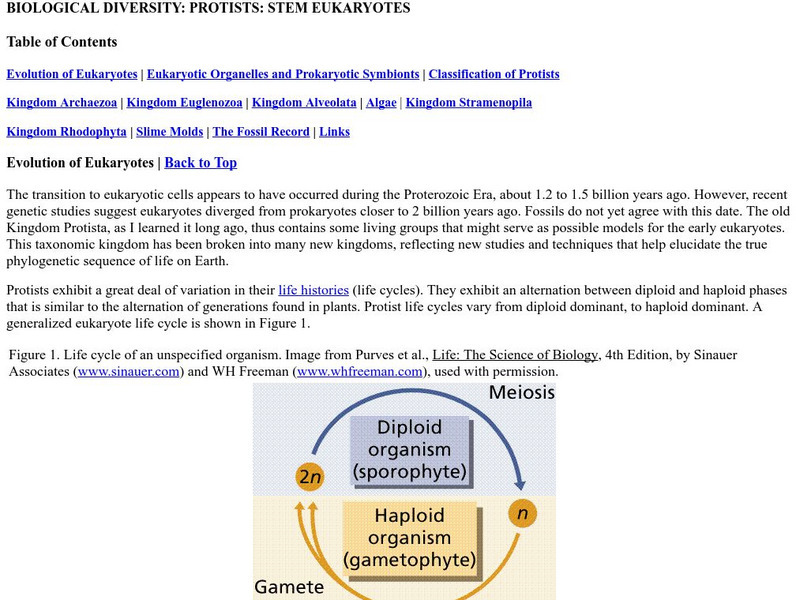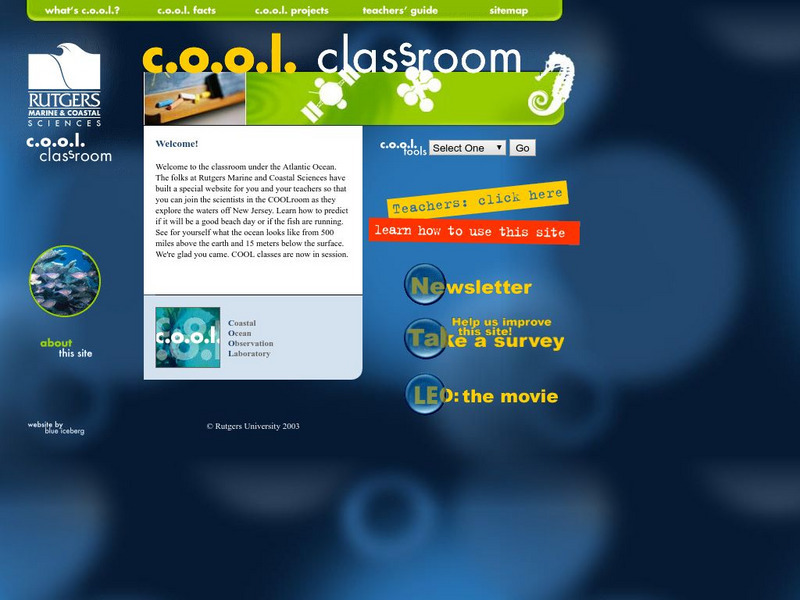Curated OER
Bad Algae!
Students explore algal blooms. In this ecosystem and health lesson, students define and describe harmful algal blooms, then discuss ways in which the impact of these algal blooms could be reduced. Students work in groups to research...
University of South Florida
Project Oceanography: Red Tide and Harmful Algal Blooms [Pdf]
Lesson plans and experiments to investigate organisms that cause Red Tide, and diseases that are caused by harmful algal blooms. Background information is provided.
Tramline
Tramline, Inc.: Virtual Ocean Field Trip
In this enchanting site, students will learn basic principles about oceans and will be introduced to an assortment of sea life, both plant and animal. Other interesting ocean links can be found on the teacher resource section of this link.
Encyclopedia of Earth
Encyclopedia of Earth: Algae
A collection of articles and news items on algae: what they are, different kinds, harmful effects of some (e.g., red tide), potential benefits (e.g., as a replacement for fossil fuels), their role in ecosystems, etc.
Other
Nesdis: Investigating Oceans: Algae Blooms
Explore how scientists use satellite data to detect and monitor Harmful Algal Blooms (HABs). HABs can be toxic to both humans and marine life. Students will learn how to read and interpret satellite images to better understand HAB events.
Texas A&M University
Ocean World: Bringing the Ocean to the Classroom
Online resource for students and teachers to see information on icebergs, fisheries, coral reefs, waves, currents and more. Provides teachers with learning activities. Has its own ask-an-expert site (Ask Dr. Bob), and provides real-time...
University of California
Ucmp: Dinoflagellates
The University of California provides background material on dinoflagellates which exhibit bioluminescence. Site includes information on their fossil record, ecology, and structure.
Estrella Mountain Community College
Online Biology Book: Biological Diversity: Protists: Stem Eukaryotes
Through full-color images and descriptive information, learn about the evolution of the eukaryotic organisms which eventually led to the presence of protists.
Woods Hole Oceanographic Institution
Woods Hole Oceanographic Institute: Where Can I Get Answers About Oceanography?
This site provides answers to frequently asked questions about oceanography. Find out more about ocean science by following the link above. What is the difference between oceanography and marine biology?
Other
Rutgers Marine & Coastal Sciences: Cool Classroom
Students and teachers can explore the work of marine scientists and observe the ocean from their computers. Learn about Rutgers Coastal Ocean Observation Laboratory, discover why oceanography is important, and see what life is like in...



![Project Oceanography: Red Tide and Harmful Algal Blooms [Pdf] Activity Project Oceanography: Red Tide and Harmful Algal Blooms [Pdf] Activity](https://d15y2dacu3jp90.cloudfront.net/images/attachment_defaults/resource/large/FPO-knovation.png)






